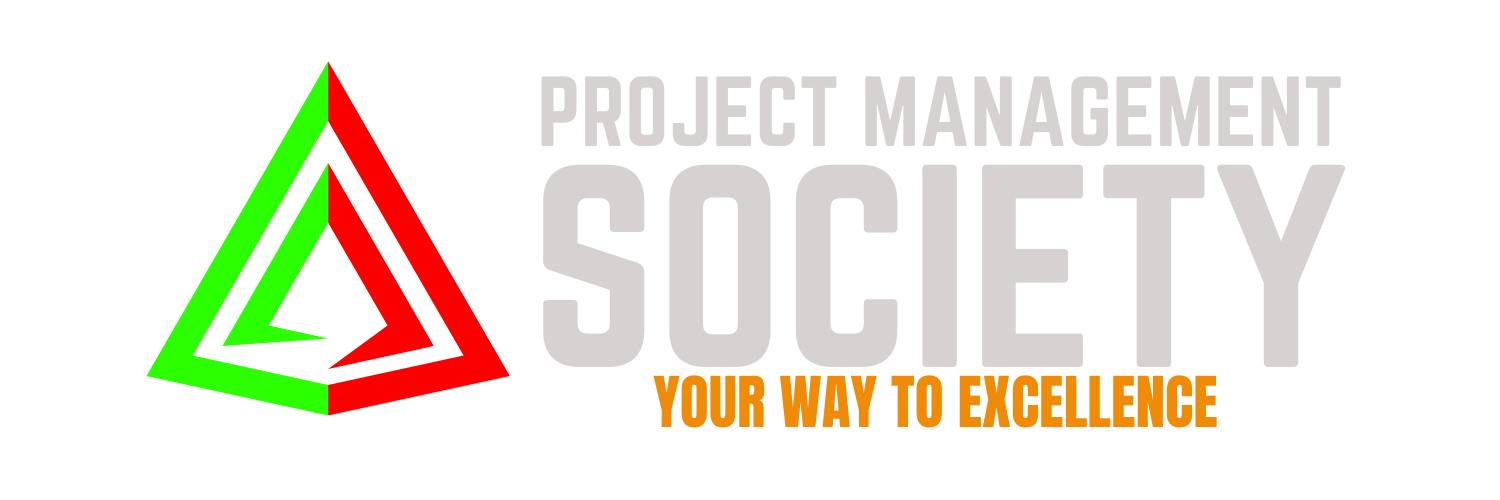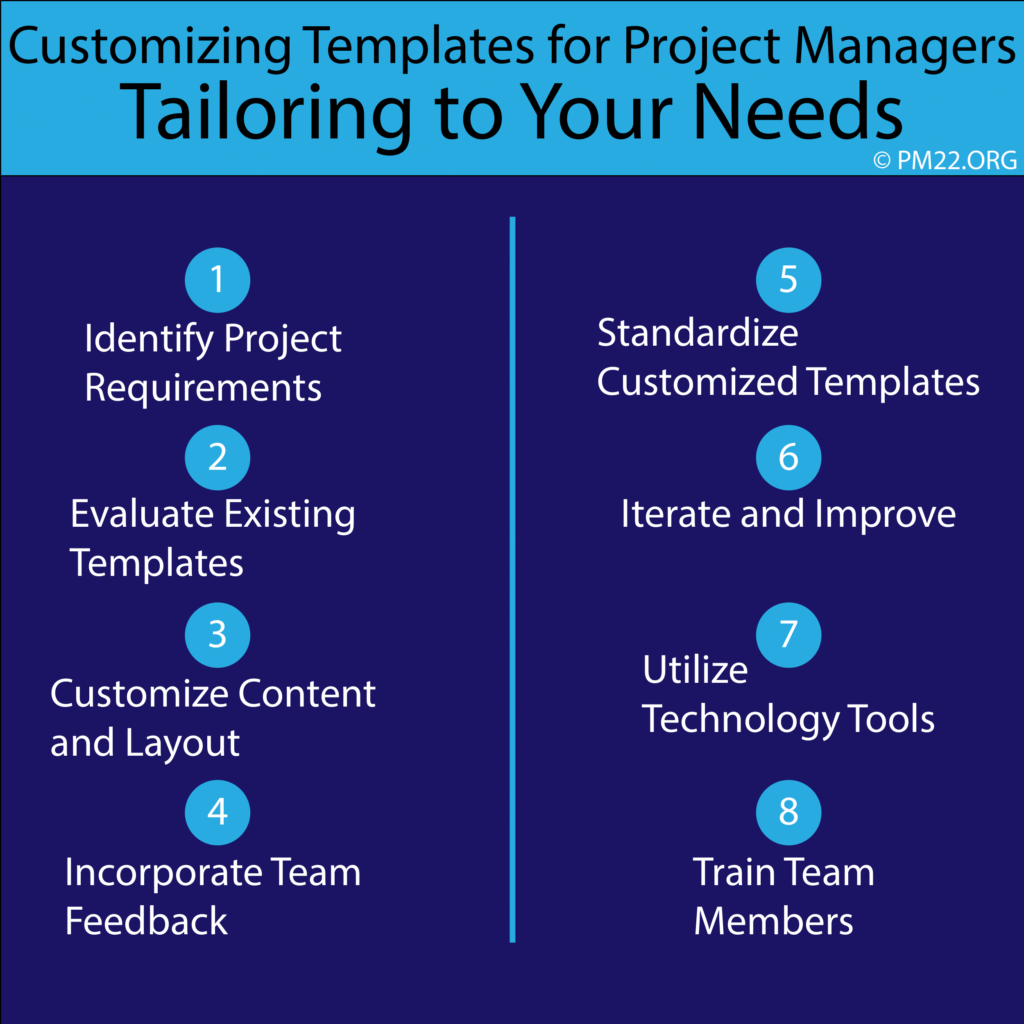 In the dynamic landscape of project management, efficiency, and organization are paramount. Every project, big or small, demands a systematic approach to ensure its success. This is where templates come into play, serving as the backbone of project management processes. However, while pre-designed templates offer a great starting point, customizing them to fit the unique needs of your project is essential for maximizing their effectiveness.
In the dynamic landscape of project management, efficiency, and organization are paramount. Every project, big or small, demands a systematic approach to ensure its success. This is where templates come into play, serving as the backbone of project management processes. However, while pre-designed templates offer a great starting point, customizing them to fit the unique needs of your project is essential for maximizing their effectiveness.
Tailoring templates to your specific requirements not only streamlines workflow but also enhances communication, fosters collaboration, and ultimately leads to better project outcomes. Here are some key steps to effectively customize templates for project managers:
- Identify Project Requirements: Before diving into template customization, it’s crucial to have a clear understanding of your project’s objectives, scope, deliverables, timelines, and team composition. This information serves as the foundation for customizing templates to align with the project’s specific needs.
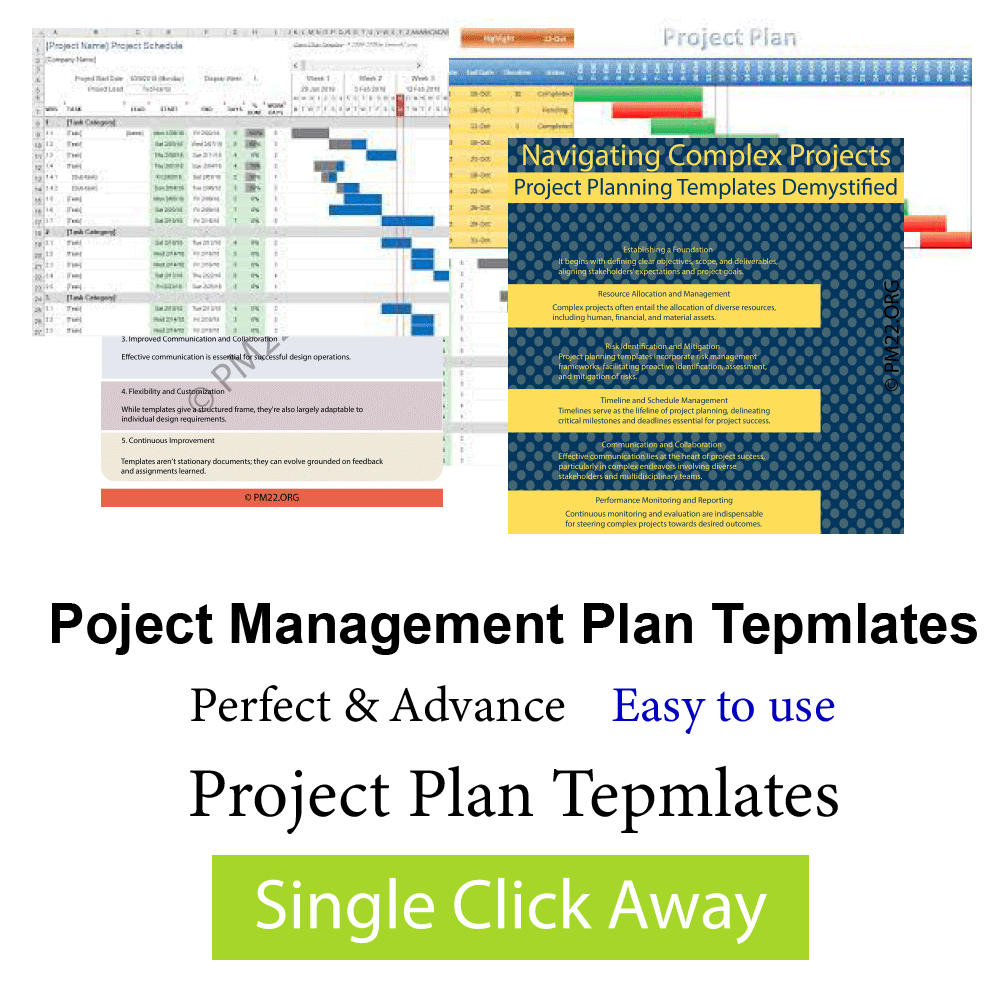
- Evaluate Existing Templates: Begin by assessing the suitability of existing templates available for your project. Whether it’s a project charter, work breakdown structure, Gantt chart, or risk management plan, examine each template to determine its relevance and applicability. Identify areas where customization is necessary to better align with your project’s requirements.
CLICK HERE TO DOWNLOAD 300+ PROJECT MANAGEMENT TEMPLATES & DOCUMENTS IN EXCEL
- Customize Content and Layout: Once you’ve identified the areas that need adjustment, focus on customizing the content and layout of the templates. Tailor them to reflect the terminology, processes, and methodologies unique to your project. Modify sections, add or remove fields, and rearrange elements to better suit your project’s workflow and reporting needs.
- Incorporate Team Feedback: Collaboration is key to successful project management. Seek input from your project team members regarding the customization of templates. They can provide valuable insights based on their expertise and experience, ensuring that the templates are practical, user-friendly, and aligned with the team’s preferences.
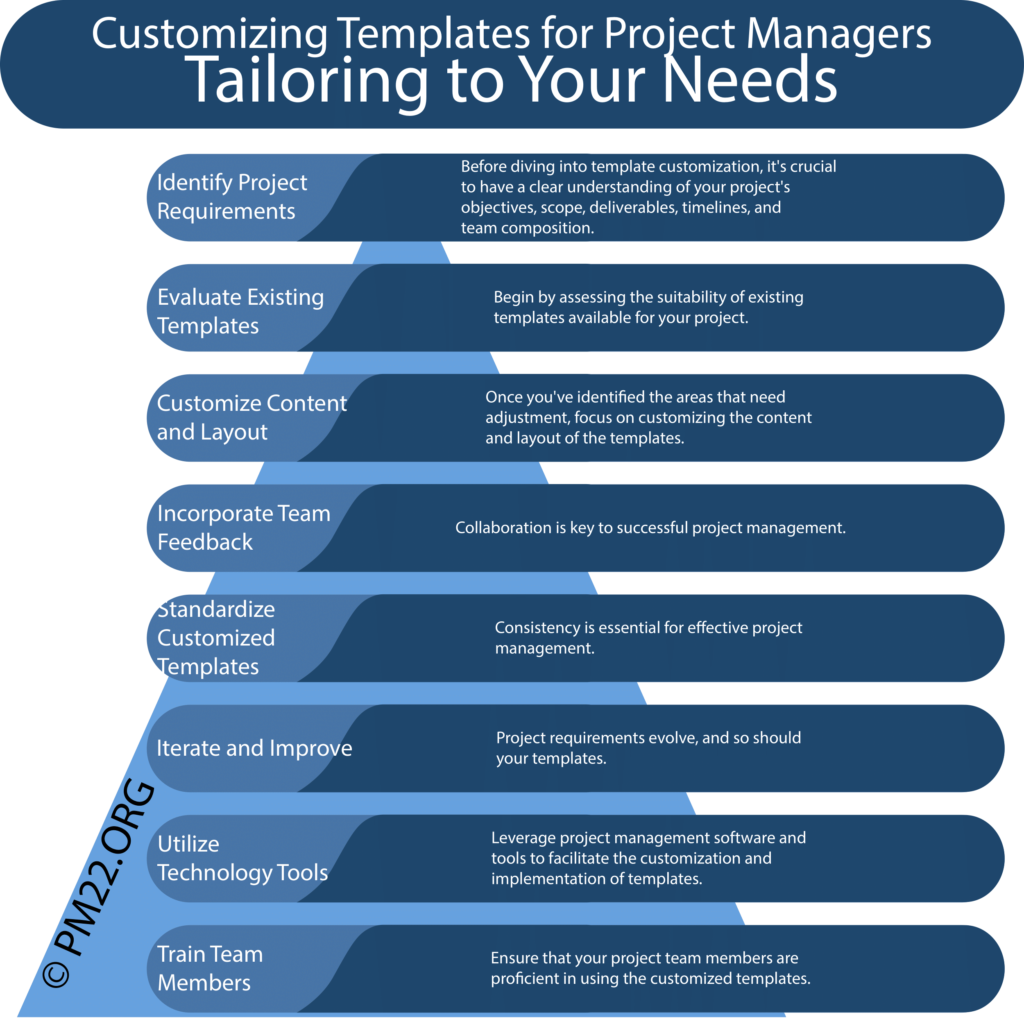 Standardize Customized Templates: Consistency is essential for effective project management. Once you’ve customized templates to meet your project’s needs, establish them as standard templates for future use. Document any changes made and communicate them to relevant stakeholders to ensure uniformity across all project-related documents.
Standardize Customized Templates: Consistency is essential for effective project management. Once you’ve customized templates to meet your project’s needs, establish them as standard templates for future use. Document any changes made and communicate them to relevant stakeholders to ensure uniformity across all project-related documents.- Iterate and Improve: Project requirements evolve, and so should your templates. Regularly review and refine customized templates based on feedback, lessons learned, and changes in project dynamics. Continuously strive to improve the effectiveness and efficiency of your templates to better support project management efforts.
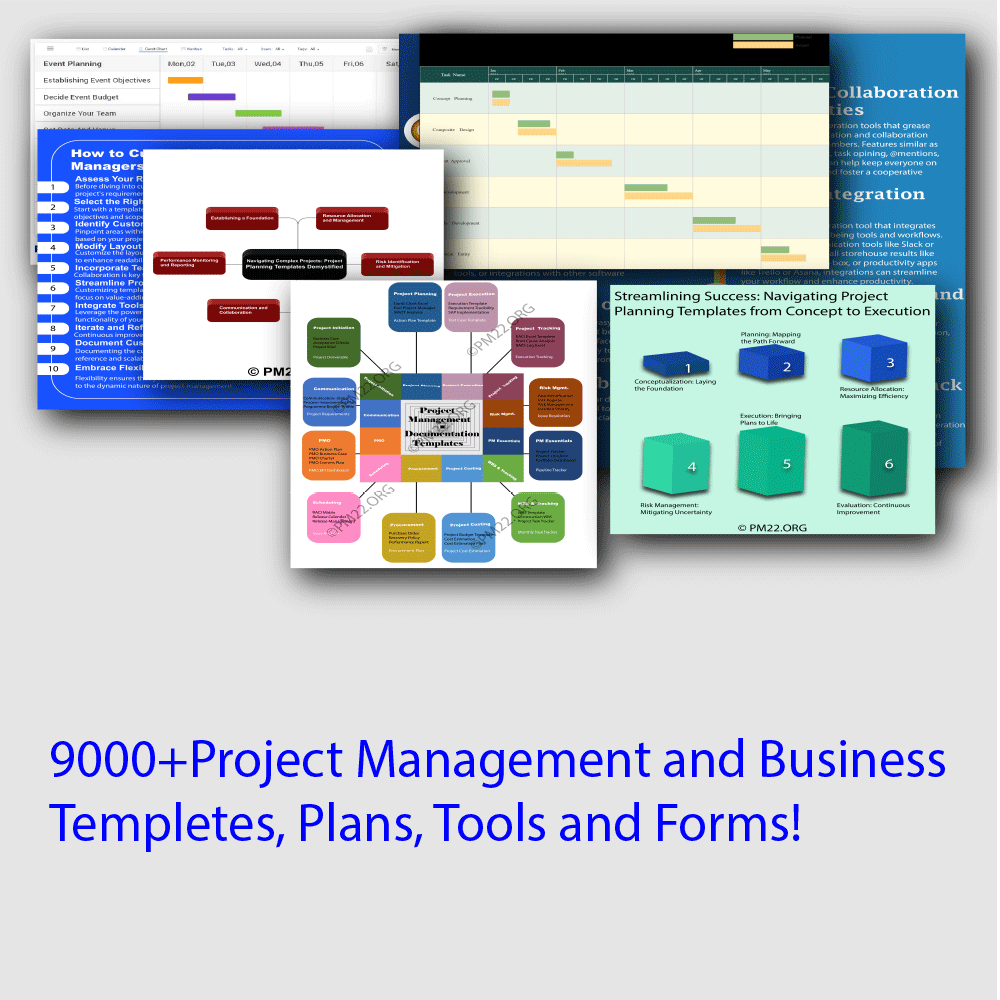
- Utilize Technology Tools: Leverage project management software and tools to facilitate the customization and implementation of templates. Many software platforms offer customizable templates that can be easily tailored to fit your project’s needs. Take advantage of features such as drag-and-drop functionality, custom fields, and template libraries to streamline the customization process.
CLICK HERE TO DOWNLOAD 300+ PROJECT MANAGEMENT TEMPLATES & DOCUMENTS IN EXCEL
- Train Team Members: Ensure that your project team members are proficient in using the customized templates. Provide training and guidance on how to effectively utilize the templates to document, track, and manage project activities. Encourage adherence to established templates to promote consistency and efficiency across the project.
By customizing templates to align with your project’s specific needs, you empower your project team with the tools and resources necessary for success. From defining project objectives to tracking progress and managing risks, customized templates serve as invaluable assets throughout the project lifecycle. Embrace the flexibility and adaptability of templates, and tailor them to your unique project requirements to drive efficiency, collaboration, and ultimately, project success.
